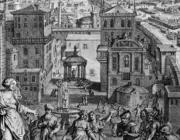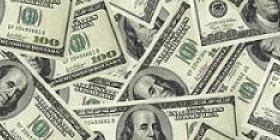Post-election reflections: how the Tories wrecked the economy and why Labour couldn’t take advantage
Now the election is over, it seems time to take stock of the last 5 years. A lot has been written about the horrific social reforms of the Tory-Lib Dem coalition government, on tuition fees, workfare, sanctions, privatisations and cuts - but the mainstream analysis, and public opinion, seems to be that for all that the Tories were at least competent from a macroeconomic perspective. This couldn't be further from the truth.
The political economy of hunger
Marx's theory, the crisis and the abolition of capitalism - Robert Kurz
In this 2010 interview, Robert Kurz discusses Marx’s theory of crisis, the theories of “collapse” advocated by a minority of Marxists (Luxemburg, Grossman, Mattick) in the early 1900s, the implications of the “third industrial revolution of microelectronics” for capitalist accumulation, Moishe Postone’s analysis of the crisis of abstract labor, “anti-industrialism” and the anti-growth movement (Décroissants), and the meaning of “labor” as a historical and economic concept that must be transcended and replaced by “conscious social planning” and a “broad diversification of industrial production and services, implemented in accordance with purely qualitative criteria”.
World economic crisis, social movements and socialism - 12 theses - Robert Kurz
In this 2009 text presented at a Marxist conference in Saxony, Robert Kurz discusses the significance of the world economic crisis of 2008, the erroneous assessments of the meaning of this crisis by the bourgeois mainstream and the left, the positivist “ontologization of labor” by traditional Marxism, Marx’s crisis theory and its basis in “categorical analysis” on an “abstract conceptual plane”, and the failure of most leftists to cultivate a perspective that goes beyond the basic categories of capitalism, instead of volunteering to perform crisis management services on capitalism’s behalf.
A critique of Anselm Jappe's essay, "Who Is To Blame?" - Roland Simon (Excerpt)
In this 2009 article, Roland Simon of Théorie Communiste subjects Anselm Jappe and, more generally, the current known as “Value Critique”, to severe criticism, claiming that their emphasis on the “commodity” and “value” causes them to misunderstand the Marxist critique of capitalism and to harbor erroneous views about “a kind of value that is no longer value” because of an alleged decline of the proportion of labor in each commodity caused by increasing productivity, and that their “‘focus’ on value and the commodity causes us to ‘forget’ that value is capital” and that the goal of capitalism is not even just surplus-value but rather the reproduction of capitalist class relations.
State capitalism in Russia - Murray Bookchin
On the construction of socialism - Nikolai Osinsky (Valerian V. Obolensky)
In this text first published in the journal of the Bolshevik left communists, The Communist, in April 1918, Osinsky attacks Lenin’s economic policies (which he attributes to Lenin’s erroneous support for the Brest-Litovsk Peace Treaty) from a “left” perspective that champions working class supremacy in the “organization of production” (in the economic councils, etc.), advocates a policy of rigorous nationalization and promotion of “heavy industry” (coal, steel, railroads), and concludes that economic reconstruction cannot be directed towards Russian “self-sufficiency”, but must be oriented towards the goal of the victory of the international proletarian revolution.













